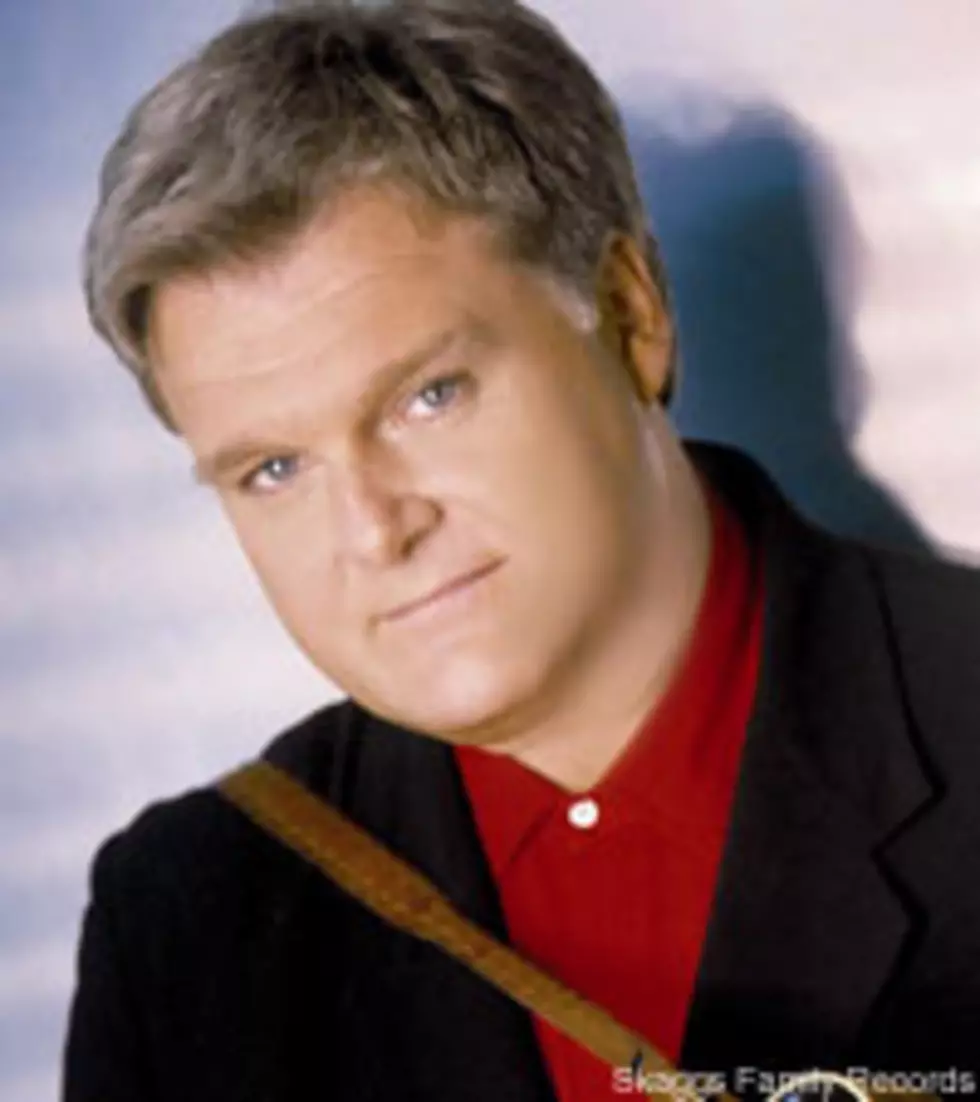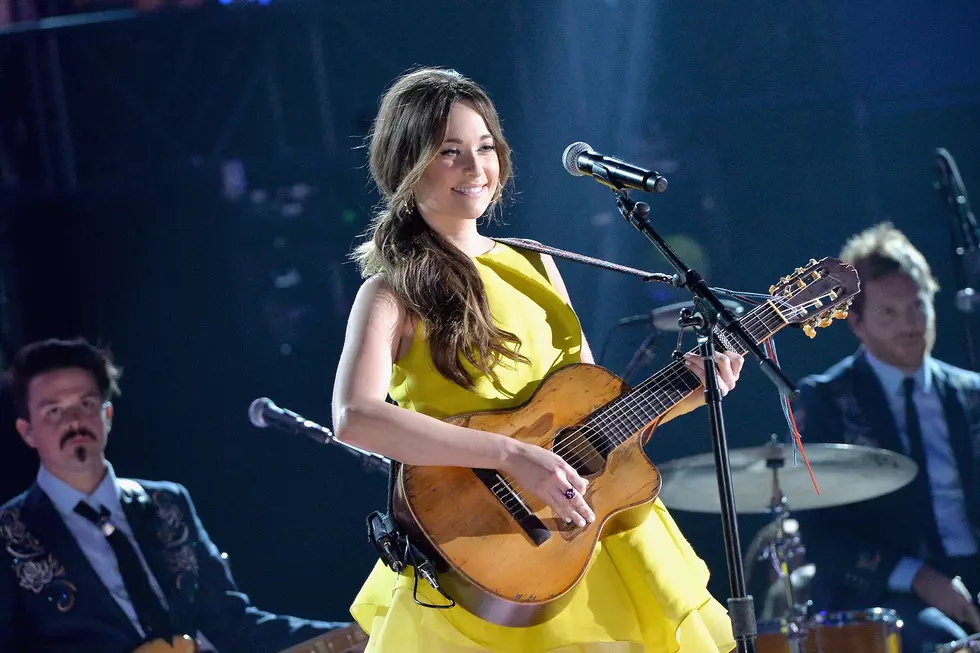
Ricky Skaggs Revives Country Hits With Bluegrass Flavor
 Ricky Skaggs' career has come full circle in recent years as the versatile entertainer returned to the bluegrass music of his roots after a long, successful run in the mainstream country arena. Skaggs began his career playing with such legendary bluegrass outfits as Ralph Stanley's Clinch Mountain Boys and J.D. Crowe's New South before becoming a mainstay on country radio in the 80s with such hits as 'Heartbroke,' 'Uncle Pen,' and 'Highway 40 Blues.'
Ricky Skaggs' career has come full circle in recent years as the versatile entertainer returned to the bluegrass music of his roots after a long, successful run in the mainstream country arena. Skaggs began his career playing with such legendary bluegrass outfits as Ralph Stanley's Clinch Mountain Boys and J.D. Crowe's New South before becoming a mainstay on country radio in the 80s with such hits as 'Heartbroke,' 'Uncle Pen,' and 'Highway 40 Blues.'
His latest project, 'The High Notes,' finds Skaggs merging both sides of his musical personality. Available exclusively at Cracker Barrel Old country stores, the album features Skaggs serving up bluegrass covers of his best-loved country hits. The 12-song collection includes 'Crying My Heart Out Over You,' 'I Wouldn't Change You If I Could,' 'Country Boy,' 'You've Got a Lover' and 'Honey (Open That Door).'
Skaggs has scored 12 No. 1 hits, won 13 Grammys and eight Country Music Association Awards. These days he owns a bluegrass label, Skaggs Family Records, that is home to The Whites, Cherryholmes, and Cadillac Sky, among other acts. During an early morning interview on Music Row, Skaggs took time to talk to The Boot about his latest release and continued passion for music and family.
How did you approach re-recording your country hits for the new album?
I had to think about it a little bit. How was I going to replace the piano licks or the steel guitar solos? Was I going to take them or was Andy [Leftwich] going to take them on the fiddle? Or was Cody [Kilby] going to take them on the guitar? How we were going to do intros? Of course, songs like 'Uncle Pen' and 'Highway 40 Blues' were kind of a no-brainer because we've been doing them on the road for so long. Songs like 'Lovin' Only Me' and 'Heartbroke' had steel guitar before, so it's a little different, but it all just came together and I love the way this came out.
In re-recording these songs, was it like taking a trip down memory lane?
Definitely. Hearing the twin fiddles kick off with 'I Wouldn't Change You If I Could' and 'Crying My Heart Out Over You,' I thought, 'Man, I remember when I cut those originally!' It really brought back a lot of memories, especially with my kids being so young when I cut some of these songs. Luke is 19 now, so he wasn't even born when I recorded some of these. It was just very sentimental. When I recorded 'You've Got a Lover,' 'Heartbroke' and 'Lovin' Only Me,' I had just learned those songs. Some of them I was still reading off the paper when we recorded. Back then, you didn't get to work the songs up and do them on the road for two or three months and really get to live with them. Having 15 years of singing those songs after they were hits helped me to be able to do a better performance than what maybe I did on the original cuts.
Do you adhere strictly to the tenets of bluegrass or do you take a few liberties?
I wanted it to be a bluegrass record, but I didn't want to be religious about it. I didn't want to be so anal necessarily that it just had to be totally all acoustic. I wrestled a little bit with 'You've Got a Lover.' The steel guitar was such an integral part of that song. Once I got over that hurdle I said, 'Okay now I'm going to put piano on 'Honey Open That Door.'' I decided I was going to make the best record I can make and make it as acoustic as we can.
After having a successful career in mainstream country music, how were you treated when you returned to performing bluegrass music?
I was highly judged. [People said] "You left us to go out and do your big country music career." I never left bluegrass. If you go back and listen to all the hits that I had --'Country Boy,' 'Uncle Pen,' 'Highway 40 Blues,' 'Crying My Heart Out Over You' -- the essence of bluegrass is right there. So you can't really say that I left bluegrass, I took bluegrass with me when I came to Nashville. I was always trying to incorporate Bill Monroe in things that I would do, whether it would be television shows or the CMA Awards or videos. I always tried to promote bluegrass and promote the music that was close to my heart, even back then when I was having country music success, but we were judged quite a bit. You're not going to make everybody happy. I'm trying to be faithful to the music and try to play it the best that I can and turn as many people onto it as I can.
 You've had a tremendously successful career. What are you still looking to accomplish?
You've had a tremendously successful career. What are you still looking to accomplish?
We have a lot of music left to cut. I don't feel like I've nearly got to the place where I'm ready to even slow down. I love the band that I have right now. These guys can play anything. I just love the fact that we're getting a lot of opportunities to play with different people, and of course the collaboration with Bruce Hornsby really worked -- musically and in concert on the road. It's a tremendous show and it's great to see his fans coming to bluegrass and my fans opening up and listening to something more than bluegrass and listening to how great a piano player Bruce Hornsby is.
You finally recorded with the Whites (Skaggs' wife Sharon and her father Buck, and sister Cheryl) last year on the album 'Salt of the Earth,' which won a Grammy and a Dove Award. Do you have any other projects with them coming up?
There certainly could be another collaboration with the Whites. I'd love for Sharon and I to do a duet record together. She and I had duet of the year 1986 with 'Love Can't Ever Get Better Than This' for the CMA and we've got four or five tunes that we've recorded together over the years.
You and Sharon have been married since 1982 and have one of the most successful marriages in the music industry. What's your secret?
Sharon and I both have had divorces in our family, in our life. We met back in '71 when I was with Ralph Stanley. We decided we were going to start dating and we said, 'Look, we're great friends and we don't want a relationship to mess up a good friendship, but if this friendship can grow into something of a great relationship then we're all for it.' We started going to church together. If I was going to see Sharon on Wednesday, we were going to be in church. If I was going to see her on Sunday, we were going to go to church. So she really helped bring me back into the church, which was great. Her whole family, the Whites, have just been the most solid Christian family that I've ever known. I think our relationship with Christ has been the glue that has he
ld us together because there are so many temptations on the road. There are so many temptations even in this town, but I love what I heard Paul Newman say. Someone asked him, 'Why don't you go out and cheat on your wife?' He said, 'I've got steak at home, why should I go out and eat hamburger?' That's how I feel about Sharon. We are soulmates and we're growing deeper and deeper in love after 27 years of marriage.
You've had your own record label, Skaggs Family Records, now for over a decade. Looking at your business today, is it what you envisioned when you launched it?
The whole vision for the label was more than just having a place for me to record. I could have gotten a record deal with Rounder, Sugar Hill or somebody else, but I really wanted to have a label where not only could I have a home for my own music, but I could also have a home for young artists that were coming along. My purpose really was to find young groups that I could like Mountain Heart, Cadillac Sky and now Cherryholmes. The biggest challenge is trying to keep people from downloading free music. It's just hard to sell when people can download it for free. The pirating is a real challenge with today's economy, but we're thankful that our doors are open. Financially, we've had the best year we've ever had. So to have a 10 year anniversary and have your most productive year, that was a really great thing, but we're still going to keep continuing to find talent. I don't want to be a big label. I would like to be a boutique label that has the best of the best and really be able to stay small. We want to be like a speed boat instead of a tanker that takes so long to turn when you really want to make a move on something.
Gibson is making a Ricky Skaggs mandolin based on your 923 Lloyd Loar F-5. I hear you are personally inspecting each instrument.
I am actually testing these mandolins for Gibson. We're doing 30 as a Ricky Skaggs Distressed F-5 model. They look like they are 50-60 years old when we get done with them, so I do play every one of them and I have the rights to reject them if they're not up to par.
After 37 years in the business, what do you have planned next?
Just keep playing music and keep recording. I feel like my best days are ahead, so we're just looking forward to continuing to make really good records and try to stay on the road and play good shows. We love doing it and it's just such a part of my life that I don't think ever I'll give up. I have no reason to want to retire. In the kingdom of heaven, there's no unemployment.
More From TheBoot









